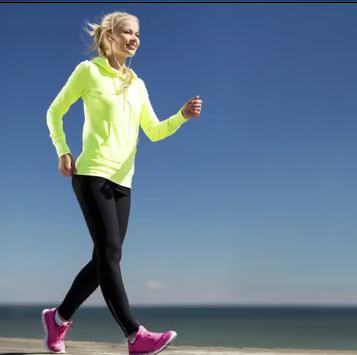We here at SciShow want you to keep being curious -- about the world, the universe, even what's going on in your own body.
这里是科学秀 致力于让你保持对大到世界宇宙 小到人体自身的好奇心
And that is why we've teamed up with Google and YouTube to answer ten of the most popular science questions searched on the internet.
这也是为何我们与Google跟YouTube合作 来回答十个在网上被搜索最多 科学类问题的原因
I'm Michael Aranda, and this is The World's Most Asked Questions.
我是Michael Aranda 这里是“世界上被问得最多的问题”
Today's question: How many calories should I have in a day?
今天的问题是:每日我该摄入多少卡路里呢?
You're probably asking because you want to know how many is too many.
你可能会问这样的问题 因为你想知道多少卡路里算是摄入过多了
After all, you know that if you take in more energy than you need, your body will store that excess energy as fat.
毕竟 你也知道摄入超过人体所需的能量 你的身体就会将多余的能量 以脂肪的形式存储起来
But before we can talk about how many calories you need, let's start with what a calorie is.
但是在我们讨论你所需多少卡路里之前 我们还是首先来讲讲 什么是卡路里吧
The calories that you find on food labels aren't the same as what scientists call calories.
你在食品营养成分表中看到的卡路里 并不等同于科学家口中的卡路里
In chemistry, a calorie is the amount of energy it takes to raise the temperature of one gram of water by one degree Celsius.
化学意义上 卡路里是能使一克水升高一摄氏度的 能量的数值
But the calories listed on your can of soda are actually kilocalories --
但是标在罐装苏打水上的卡路里实际上是千卡
each one equal to 1,000 of the "small calories" that chemists use to measure energy.
每千卡等于1000卡 这里更小的单位“卡”就是化学家测量能量时用到的
So when your soda pop says it has 150 food Calories -- you'll notice it's written with a capital C --
所以如果苏打上写着含有150食物卡路里 你就要注意了 这是用大写的C标明的
that's the same as 150,000 small calories -- with a little c.
这就意味着它等于用小写c标明的150000小卡
So that's enough energy to raise the temperature of a whole liter of water by 150 degrees.
这样的能量足以使一升水升高150摄氏度
Kinda puts things in perspective.
这或许能让你对卡路里有点概念
But how many calories you need depends on who you are, and how you live your life.
但是你需要多少卡路里取决于你的身体情况跟你的生活方式
First, there's your age to consider.
首先 你需要考虑自己的年龄
Despite the stereotype of the ravenous teenager, your calorie demands actually peak when you're in your mid-20s.
尽管在我们固有观念中 青少年是需要最多能量的 但事实上 人体卡路里需求的巅峰 出现在20多岁时
That's when your metabolism is higher than at any other point in your life,
此时的新陈代谢速度是人生中最快的
and because you keep growing into your 20s, once you're done,
并且 当你发育到二十多岁的阶段
you have more lean muscle mass which requires more energy to maintain.
这时有更多的瘦肌肉群 需要更多的能量来维持
So, depending on your lifestyle and other factors, when you're in your 20s, you may need from 2200 to 3000 calories a day!
因此 当你在20多岁时 考虑到你的生活方式及其他因素 你每天所需的卡路里从2200到3000不等
Your sex is a factor, too.
性别同样也是一个影响因素

Men tend to have more total body mass, and more muscle mass, than women on average,
男性平均上体重跟肌肉重量都高于女性
so their caloric requirements can be slightly higher.
所以男性的卡路里需求也会稍微大一点
According to the US Institute of Medicine, the average calorie range for an adult woman is 1800 to 2400 calories a day;
根据美国医学研究所 成人女性平均每日卡路里需求为 1800到2400卡
for men, it could be anywhere from 2000 to 3000.
而男性则可能是2000到3000卡
But that's obviously a pretty broad range.
但显然这个范围比较广
And as delicious as it sounds, most of us don't need to be eating 3000 calories a day.
虽然听起来需要这么多能量 但是我们大多数人并不需要每日摄入3000卡
And that's because the most important factor, by far, that affects your calorie needs is your activity level.
这是因为 到目前为止 影响卡路里需求最重要的因素是 人体的活动水平
For example, if you're a woman in your 30s or 40s, and you live a rather sedentary lifestyle --
比如 如果你是一位30多岁或者40多岁的女性 又通常久坐不动
meaning you don't set aside time for exercise --
意思是你没有专门锻炼的时间 那么平均说来
then probably don't need any more than 1800 calories on average.
你需要的卡路里 可能不会超过1800卡
But if you regularly take a nice brisk walk -- say between 2.5 and 5 kilometers a day --
但是如果你是有规律地 轻快地散步 比如每天走2.5到5公里吧
then your caloric needs go up about 10%, to 2000 calories.
那么你的卡路里需求就会上涨到2000卡 大约提高了10%
And if you regularly walk more than 5 kilometers -- or burn the equivalent amount of energy doing some other exercise,
又比如你规律散步超过5公里 或者做其他运动 燃烧了等同能量
like running -- then you're looking at another bump, up to 2,200 calories.
比如跑步 那么你的卡路里需求需要上升到2200卡
But when it comes to calorie intake, medical professionals will tell you that the real goal is to focus on your energy balance --
但考虑到卡路里摄入的问题时 医学专家会告诉你 真正的目标是关注能量平衡
that's the balance of calories you take in compared to the calories you burn through physical activity.
即你摄入的卡路里跟 你通过身体活动消耗的卡路里之间的平衡
So, naturally, if you burn more calories than you take in, you're going to have to use more of the energy that you have stored up as fat.
因此 自然地 如果你消耗的卡路里大于摄入的 你就会消耗掉 之前存储在体内的脂肪
And, on the other hand, if you consume more than you use,
另一方面 如果你摄入比消耗多
you'll just keep building up those "energy reserves" around your midsection.
那么你的身体就会 将这些能量存储起来
Since no one burns the same exact number of calories that they eat every day,
因为没有人每天卡路里的摄入与消耗恰好相等
the key is to maintain energy balance over the long term.
所以关键是要长远地保持能量平衡
So if you consistently ingest more energy than you use, you'll be out of balance --
所以如果你持续摄入的能量超过了消耗的 平衡就不复存在
just as you would be if you keep burning more energy than you supply for your body.
就像消耗能量超过摄入时也一样会造成不平衡
But, if you ask me? You look fantastic.
至于 你要是问我的话 我会回答你看起来非常完美
Now, SciShow survey funtime!
现在进入科学秀调查的轻松一刻
Survey takers who reported counting calories also reported getting hiccups less than other survey takers.
据报道那些计算卡路里的被调查者比其他被调查者 更少打嗝
Interesting, but it's important to note that correlation does not equal causation.
这点很有趣 但值得注意的是这之间的相互关系不等于因果关系
Of all of the fascinating questions in the world, what question do you want answered most?
这些世上奇妙的问题中 你最希望我们回答 哪一个呢
Let us know on Facebook or Twitter or down in the comments below
那就在Facebook Twitter或者下方评论区留言让我们知道吧
and we will answer the best questions in a new video at the end of the month.
我们会在 月底新一期视频中回答其中最精彩的问题
And don't forget to use the hashtag #WMAQ and stay tuned for other videos this week.
别忘了加上#WMAQ#的标签 也记得收看本周科学秀其他视频哦


